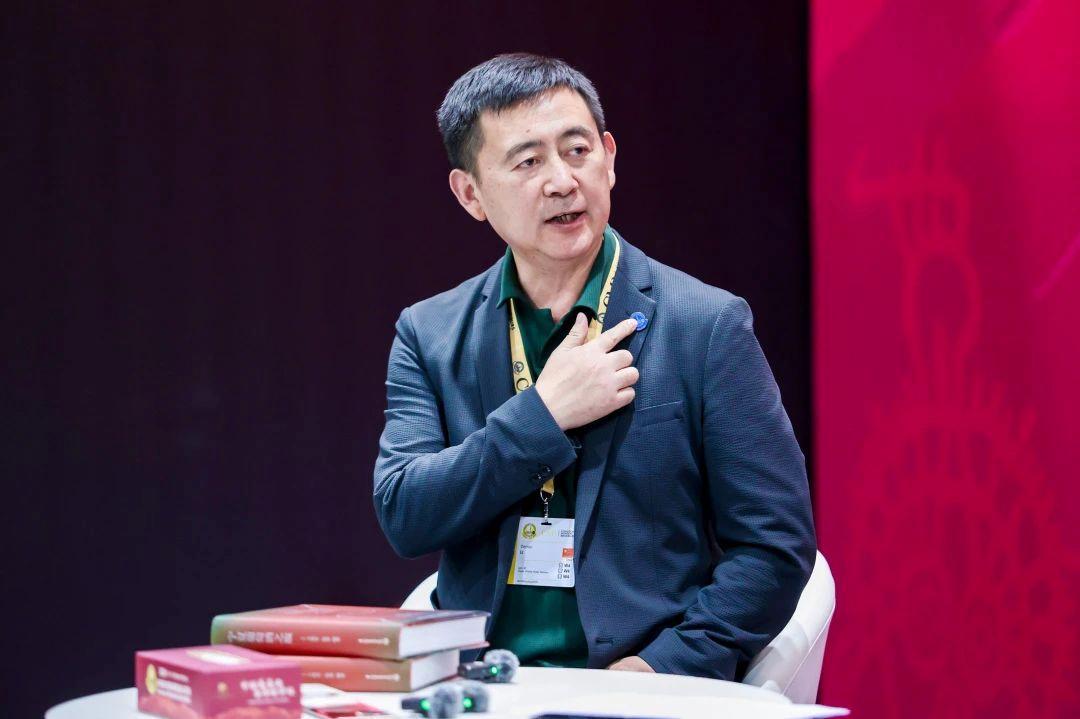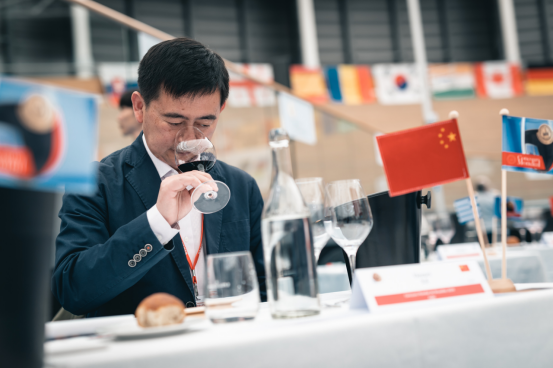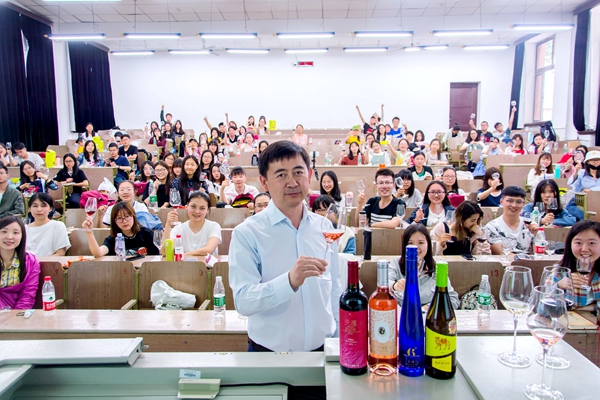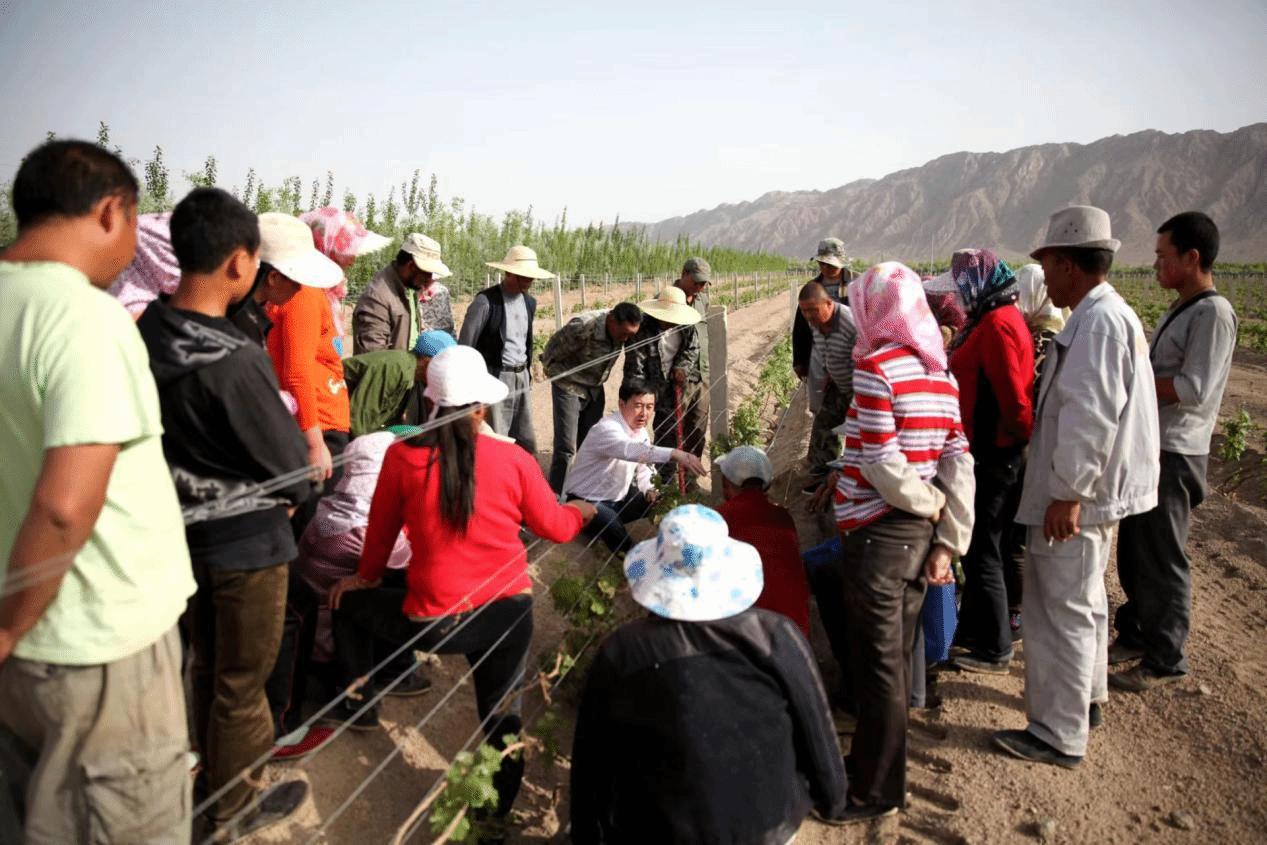The 32nd Concours Mondial Bruxelles (CMB) recently took place in Yinchuan, Ningxia Hui Autonomous Region, where Professor Li Demei from the Department of Brewery Engineering of BUA's College of Food Science and Engineering was awarded by Concours Mondial Bruxelles a blue badge that symbolizes a 5-year judge experience, which is the highest-level CMB badge ever won by a Chinese judge.

It's learned that CMB is one of the world’s three major wine events. Established in 1994, it’s headquartered in Belgium, and held at different countries every year, with judges from over 50 countries and regions and 7,000-10,000 types of wine participating in each session. CMB judge badges mark the recognition of the awarded judges' professionalism, persistence and dedication, and the evaluation system is known for its rigorous standards. Blue badges are for judges with a CMB judge experience of 5-10 years, representing a high-level individual honor in the event's evaluation system and held by just a few globally.
As a prestigious expert in China's grape and wine field, Li Demei has acted as a CMB judge several times since 2016, joining the evaluation work in Bulgaria, Switzerland, Mexico, and China, and taking part in the organization of several CMB sessions held in China. He is an active promoter of the event in China. Li Demei is also a permanent judge of multiple internationally renowned wine events, having active presence in the global professional evaluation system, and enjoying extensive international influence in the wine field.
Li Demei also drives Sino-foreign exchanges on wine from a broader perspective as a scholar, introducing to international judges the development of China's wine-producing regions on several occasions, and contributing to China's higher position in the global wine industry. He's thus hailed by international peers as the "Promotion Ambassador of Chinese Wine and Culture".

As a teacher, Li Demei has been dedicated to teaching for more than three decades, working relentlessly to be a guide and leader for students on their path to healthy growth, and founding the first brewing engineering specialty in Beijing. He teaches the Wine Culture and Appreciation course, and emphasizes sparking students' interest with real scenarios. He heads the forging of the "Beinong Estate Wine" wine brand, and leads students to participate in national events like China College Students "Internet+" Innovation and Entrepreneurship Competition, as well as social practices like the action plan for Capital teachers and students serving the rural revitalization. In doing so, he has effectively combined research outcomes with practical teaching, and continuously trained excellent talents for the industry. He has been successively awarded honors such as "Beijing Model Teacher of Ethics", "Outstanding Party Member in Beijing's Schools of Higher Learning", "Great Merit in China's Anti-Poverty Campaign", "Beijing Model Individual Promoting Ethnic Unity and Progress", "China Wine Industry 30-Year Meritorious Individual", "Beijing Model Worker" and "Ordre du Mérite agricole". The off-campus teaching base he co-built has been named "Beijing Outstanding Off-Campus Talent Training Base".

In terms of scientific research, Li Demei has headed multiple provincial-level research projects, and participated in important researches such as the Planning for the Advantages of China's Wine Industry. The wine made under his guidance won more than 500 awards in international events including CMB and Decanter World Wine Awards (DWWA). He was rated by Decanter as the one of the "Top 50 Influential Individuals in Global Wine Industry", and is also a major figure promoting Marselan in China.

Taking roots in China's wine industry, Li Demei has witnessed the transformation of "barren land" into "wine yards", translating scientific and technological outcomes into the engine driving the development of wine-making regions. Over the last two decades, he has travelled to Ningxia, Xinjiang, and Hebei, among others, for in-depth investigations, promoting improvement of the breeding of indigenous wine grape varieties and winemaking techniques, and helping local wine sectors start from scratch and grow strong. Yanqi Basin in Xinjiang he has supported has become a "state-level wine grape growing demonstration area".
 LATEST NEWS
LATEST NEWS
 search
search


